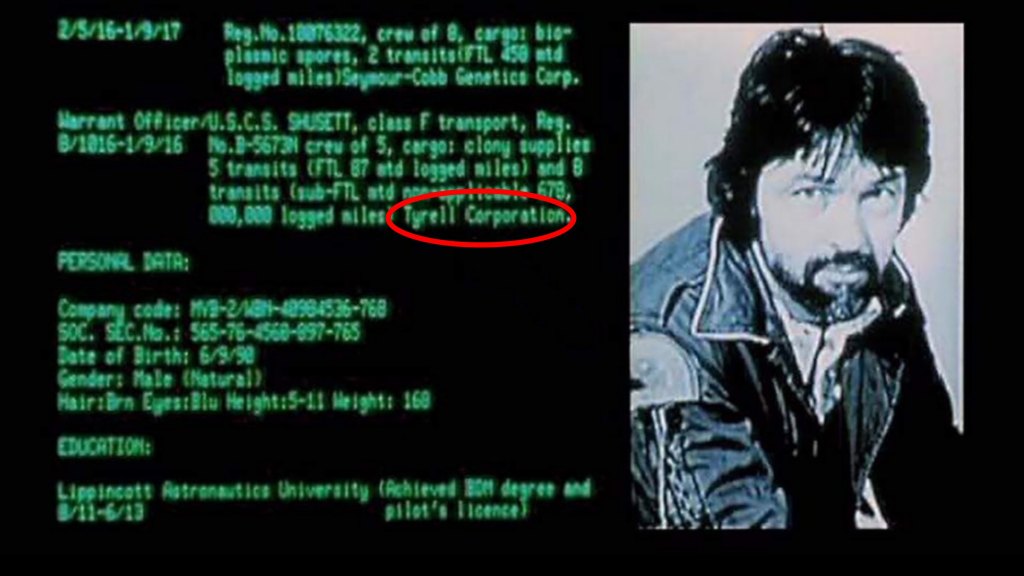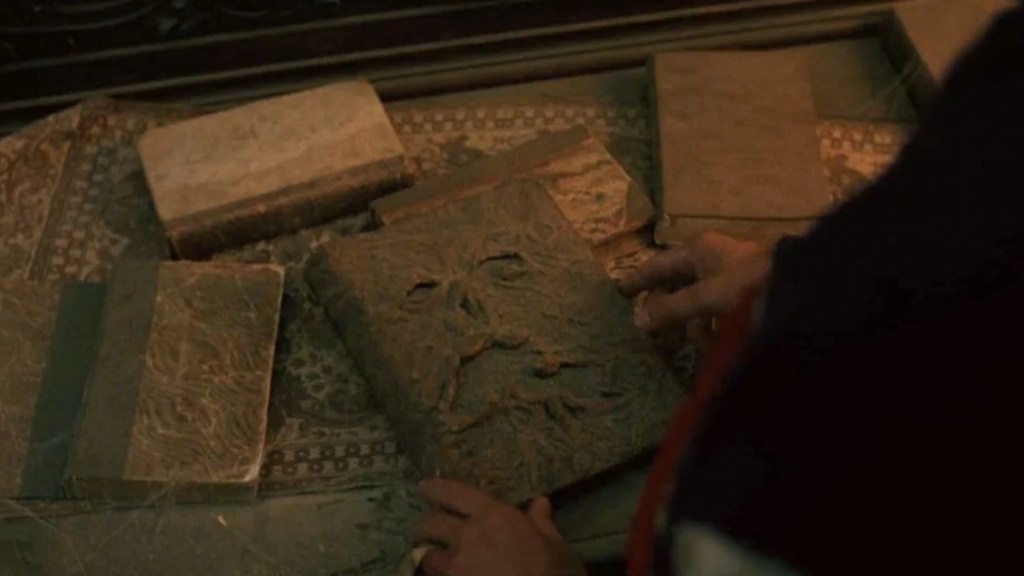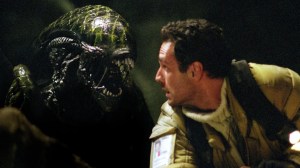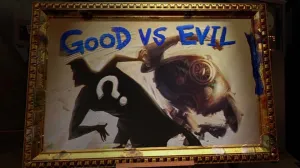In the latter half of the 20th century, director Ridley Scott redefined the look of cinematic sci-fi with the one-two punch of Alien (1979) and Blade Runner (1982). With those two films, Scott almost singlehandedly took the colorful, hopeful space fantasy of Star Trek and Star Wars and gave it a dark, dystopian makeover. Alien and Blade Runner function like two sides of the same coin, presenting a grim future where large, faceless mega corporations run both Earth and space. Naturally, fans would want to put both franchises in the same universe. Unfortunately for them, Alien: Earth just killed any hope of an Alien/Blade Runner connection in canon.
Videos by ComicBook.com
Alien: Earth begins with a bit of onscreen text detailing the universe’s three forms of artificial life: cyborgs, synths, and hybrids. Noticeably absent are Replicants — Blade Runner‘s genetically engineered synthetic humans. With one single omission, the series effectively put an end to a 26-year-old fan theory that Rick Deckard and Ellen Ripley once breathed the same polluted air.
The Alien & Blade Runner Shared Universe Theory Began With A DVD Special Feature

The fan theory that Alien and Blade Runner are set in the same universe originally stems from the 1999 release of the Alien: 20th Anniversary Edition DVD. The disc included a biography of Tom Skerrit’s Dallas in the bonus features, which briefly mentions that the captain worked for Blade Runner‘s Tyrell corporation before joining Weyland-Yutani. Fans took that one Easter Egg and ran with it, pointing out other similarities between the Alien and Blade Runner franchises as proof that they belong to a shared universe.
And make no mistake, there are several things Alien and Blade Runner have in common. Both movies inhabit bleak capitalist dystopias — one where corporations have effectively replaced the Government, and the Asian infiltration of American culture that dominated ’80s sci-fi is in full swing. From there, it’s not hard to speculate that Weyland-Yutani’s colony on LV-426 in Aliens is one of the same “off-world colonies” mentioned in Blade Runner.
Meanwhile, the Alien/Blade Runner shared universe fan theory turned out to also be a creator theory. In a commentary track on the same Alien: 20th Anniversary Edition DVD, Ridley Scott expressed his opinion that the Earth the Nostromo crew was desperately trying to get back to was the same world inhabited by Deckard and the rest of the Blade Runner cast. Over a decade later, the Blu-ray of Scott’s confusing Alien prequel Prometheus would include a booklet containing a diary entry from Guy Pierce’s Peter Weyland that further cemented the connection between Alien and Blade Runner.
In the diary entry, Weyland mentions a mentor who ran his company, “Like a god on top of a pyramid overlooking a city of angels,” and focused on “genetic abominations” rather than “simple robotics.” While Weyland never mentions Eldon Tyrell by name, a sentence about this “mentor” implanting his creations with “artificial memories” leaves little doubt who the CEO is talking about. These special features would seem to confirm the theory that Alien and Blade Runner are connected in some way, if not for two simple facts: 1) Special features aren’t generally considered canon, and 2) out of all the various creators involved with the Alien and Blade Runner franchises Ridley Scott is the only one pushing the narrative that the two IPs are related.
Creator-Fueled Fan Theories Are Nothing New

Believe it or not, directors expressing non-canon theories about their films is fairly common. A good example is Adam Marcus claiming that Jason Voorhees was a deadite. The director said this after including the Necronomicon in Jason Goes to Hell: The Final Friday as an Easter Egg, but every single other Friday the 13th film contradicts his claim. The same can be said for Ridley Scott’s claim that two of his most influential films share a setting.
As fun as the idea of Alien and Blade Runner being set in the same universe is, nothing on screen has ever directly supported the idea. Neither Blade Runner 2049 nor Alien: Romulus makes any direct references to a shared universe between the two. Scott himself could have put a reference to the Tyrell Corp in Prometheus proper rather than burying it in the special features of the film’s home release if he really wanted to canonize the connection. Instead, we have the complete opposite with Alien: Earth putting the fan theory to rest once and for all.
Alien: Earth Shows Us An Earth Too Bright and Clean For Blade Runner

It’s not just the series’ deliberate lack of Replicants that disproves the fan theory but the way Earth itself appears. The planet — at least what we’ve seen so far — looks too clean, too nice to be the same Earth from Blade Runner. Then again, it seems to be too clean for a planet run by giant businesses as well, but that’s neither here nor there.
In addition to that, the series states that five corporations control the Earth and most of space: Weyland-Yutani, Lynch, Dynamic, Threshold, and Prodigy. One would assume that, were the Earth in Alien: Earth‘s title the same Earth from Blade Runner, one of those corporations would be the Tyrell corporation or, at the very least, the Wallace corporation from Blade Runner 2049. Instead, no replicants, no Tyrell/Wallace, and no rainy, pollution-ridden backdrop, point to no connection between Alien and Blade Runner.
But hey, thanks to Predator: Badlands, it looks like we’ll be getting a new crossover between the Predator and Alien franchises. If that proves to be successful, who knows, maybe we’ll get an official Blade Runner/Alien crossover someday. And until then, there’s nothing wrong with personal headcanons.
Were you disappointed in Alien: Earth putting the kibosh on Blade Runner and Alien being set in the same universe? Let us know in the comments.









